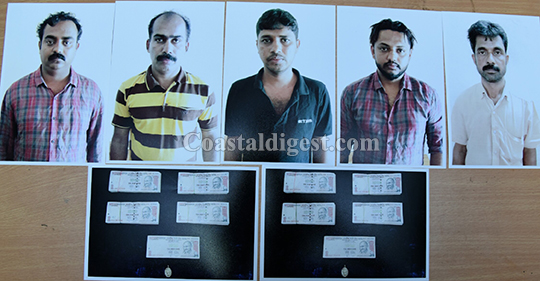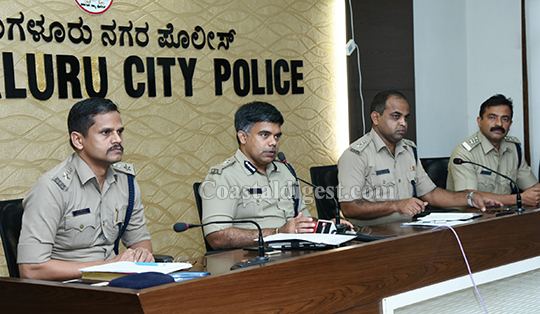Mangaluru, Oct 17: Mangaluru police have arrested five persons in connection with a two week old armed robbery occurred at a priest's residence near Kateel on the outskirts of the city.

Among the arrested Sudhindra Rao H K alias Sushindra Rao alias Real estate Rao (33), son of Haridas Rao, from Bejai Kapikad is the main accused and mastermind in the case, said Mangaluru City Police Commissioner M Chandra Sekhar.
Rao's four accomplices – Chidananda (33) from Yekkar village, Suraj Kumar (35) from Yekkar Permude, Suresh Kumar M (40) from Adyanadka, Punacha village Bantwal and Sadashiva Shetty (49) from Yekkar – have also been arrested along with him.
Rao personally knew Vasudev Asranna, the priest and hereditary trustee of Kateel Durga Parameshwari temple, whose house was targeted by armed robbers on October 4. Besides, some of the family members of Rao are working in the same temple.
The city police chief said that Rao, who is involved in real estate business, was in dire need of money to repay a loan he had borrowed from someone. Hence, he hatched the armed robbery plan.
Interestingly, Suresh Kumar, one of the arrested accused, is a government employee and he was working as PRO for the same temple.
Mr Chandra Sekhar said that all the five were caught together when sleuths from CCB and Bajpe police station, acting on a credible information, surrounded a car near Hunsekatte bus stop on Monday. All of them were on board the Hyundai Elite i20, bearing registration number KA 19 ME 3310, he said.
The commissioner, however, said that the police are yet to arrest the seven accused who executed the armed robbery. Four teams, formed in the wake of robbery, are still in search of the robbers, he said, expressing confidence to nab all the culprits soon.
It could be recalled here that a gang of armed robbers struck at Vasudev Asranna's house located at Gidikere near Kateel and decamped with valuables worth Rs 14 lakh and Rs 30,000 cash. Asranna family is known for providing ayurveda medicine for skin diseases. The robbers had entered the house asking for a medicine to cure skin disease.
Mr Chandra Sekhar said that the police have already seized Rs 4, 25,000 cash (earned by selling some of the stolen valuables), a pendent of 3.910 gram gold, pendent with image of goddess Durgaparameshwari, 5 mobile phones and a car from the accused.
Also Read: Armed robbers decamp with valuables worth Rs 14 lakh from priest's house






Comments
14 Lakh without paying TAX.... Asranna...
Add new comment